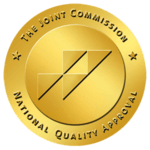CT in Practice
Accepting difficult emotions and navigating them in a healthy manner is a difficult task, and embracing these new perspectives takes time. At Redpoint, we understand that such profound change isn’t easy to process in a day, and we are committed to guiding you through these transformations one step at a time.
We take our time getting to know each client and establishing a personal connection with each individual’s recovery journey based on trust and transparency. By discussing difficult emotions and past experiences, clients can better understand how they were affected by their own experiences, as well as be more aware of inherent negative or self-destructive thoughts or behaviors that may have otherwise gone unrecognized.
Navigating talk therapy alongside trained professionals, exploring one’s experiences and emotional responses to the memories and feelings therein, and understanding how such emotions continue to impact one’s daily life all create a transformative basis on which to commit oneself to a new perspective and recovery plan.
ACT and Redpoint also continue to help each client identify and pursue their own core values – the aspects of a client’s identity and goals for the future that make each and every recovery journey unique. We understand that each story is filled with nuance, and are prepared to take a versatile approach to help each client establish their own goals, identity, and visualization for their future.
Pursuing Your Future
Embracing effective ACT practices with us is the first step to a truly transformed future. However, it does not mark the end of a transformative journey, and continuing to pursue one’s recovery goals in daily life is a personal endeavor. Clients will learn not just how to navigate trying emotions within our walls, but also how to implement effective practices in daily life with their own best goals and resources in mind. Commitment to one’s own future is an essential part of effective ACT, and Redpoint strives to provide each client with the tools to shape their own goals for the future.













